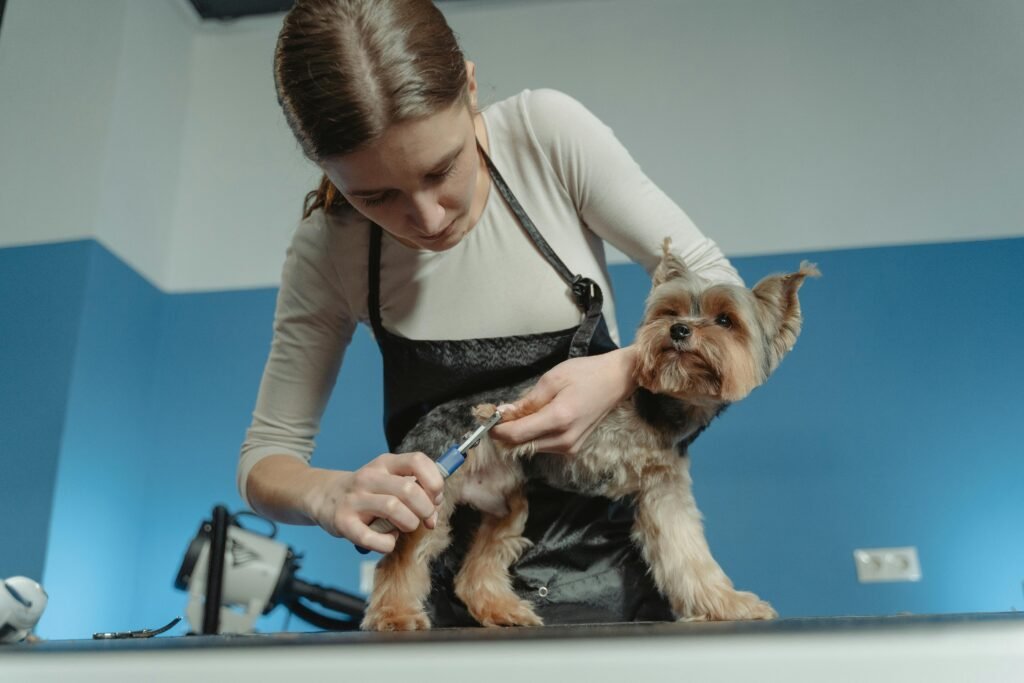Preparing for a new pet is crucial for their well-being and happiness. This guide provides essential tips for new pet owners to ensure a positive start for their furry companion. Now you can see top trend 10 tips first time for new Pet Owners 2024.
Prepare Your Home
Ensure all dangerous items are out of reach, secure cabinets, hide cords, remove toxic plants, and provide a comfortable space.

Secure Hazardous Items: Keep cleaning supplies, medications, and other toxic substances out of reach. Store them in high cabinets or use childproof locks.
Remove Small Objects: Pets, especially young ones, are curious and may swallow small objects. Keep items like coins, rubber bands, and small toys out of their reach.
Check for Escape Routes: Ensure windows, doors, and fences are secure to prevent your pet from escaping. Repair any gaps or holes that could be potential escape routes.
Create a Cozy Space: Designate a specific area for your pet with their bed, food, water, and toys. This helps them feel secure and establishes a routine.
Research and Choose the Right Pet Food
Nutrition plays a vital role in your pet’s health and well-being. Research the best diet for your specific pet species and breed, and choose high-quality pet food. Here are some tips:
Consult Your Veterinarian: Get recommendations from your vet on the best food for your pet’s age, size, and health condition.
Read Labels Carefully: Look for pet food that lists high-quality proteins as the first ingredient and avoid those with fillers and artificial additives.
Consider Special Diets: Some pets may require special diets due to allergies, sensitivities, or health conditions. Discuss these needs with your vet.

Schedule a Vet Visit
New pet needs first vet visit for health baseline and to address immediate concerns after bringing them home. Important step.
Get a Health Check: The vet will perform a thorough examination to ensure your pet is healthy and address any existing issues.
Vaccinations and Preventative Care: Ensure your pet receives necessary vaccinations and discuss a schedule for future shots. Also, ask about flea, tick, and heartworm prevention.
Microchipping: Consider microchipping your pet for identification purposes. This can be crucial in case they get lost
Understand Your Pet’s Behavior
Each pet has its own unique behavior patterns and communication methods. Understanding these can help you build a strong bond and address any behavioral issues early on. Here are some insights:
Body Language: Learn to read your pet’s body language to understand their mood and needs. For example, a wagging tail can indicate happiness in dogs, while flattened ears may signal fear in cats.
Training: Start training early to instill good behavior. Use positive reinforcement techniques such as treats and praise to encourage desired behaviors.
Socialization: Introduce your pet to various environments, people, and other animals to help them become well-adjusted and confident.
Establish a Routine
Establish a routine for your pet with consistent feeding, exercise, playtime, and bedtime for security and reduced anxiety.
Feeding Times: Stick to regular feeding times to regulate your pet’s digestion and energy levels.
Exercise and Play: Schedule daily exercise and play sessions to keep your pet physically and mentally stimulated.
Rest and Sleep: Ensure your pet has a quiet, comfortable place to rest and sleep. Pets need adequate sleep for their overall well-being.
Provide Mental and Physical Stimulation: Just like humans, pets need mental and physical stimulation to stay healthy and happy. Here are some ways to keep your pet engaged:
Toys and Puzzles: Provide a variety of toys and puzzle feeders to challenge your pet’s mind and keep them entertained.
Training Games: Incorporate training games into your routine to stimulate your pet mentally and reinforce good behavior.
Outdoor Activities: For dogs, regular walks, runs, or trips to the dog park are essential. For indoor pets like cats, create an enriching environment with climbing structures and interactive toys.
Focus on Grooming and Hygiene: Regular grooming and hygiene practices are crucial for your pet’s health and comfort. Different pets have different grooming needs, so tailor your approach accordingly:
Brushing: Regular brushing helps keep your pet’s coat healthy and reduces shedding. It’s also a great bonding activity.
Bathing: Depending on the type of pet, regular baths may be necessary. Use pet-specific shampoos to avoid skin irritation.
Nail Trimming: Keep your pet’s nails trimmed to prevent overgrowth and related issues. If you’re unsure how to do it, ask your vet or a professional groomer for guidance.
Dental Care: Dental hygiene is often overlooked but is vital for your pet’s overall health. Brush your pet’s teeth regularly and provide dental treats or toys.
Learn About Common Health Issues: Being aware of common health issues can help you spot potential problems early and seek prompt veterinary care. Here are some common health concerns:
Parasites: Fleas, ticks, and worms can cause serious health issues. Regular preventative treatments and check-ups can help keep these parasites at bay.
Obesity: Monitor your pet’s weight and provide a balanced diet and regular exercise to prevent obesity, which can lead to other health problems.
Allergies: Pets can suffer from allergies to food, environmental factors, or even flea bites. Watch for signs such as itching, redness, or digestive issues and consult your vet if you suspect an allergy.
Plan for Emergencies: Be ready for accidents anytime to improve your pet’s outcome. Follow these helpful tips:
First Aid Kit: Keep a pet-specific first aid kit at home and familiarize yourself with basic first aid procedures.
Emergency Contacts: Have your veterinarian’s contact information and the nearest emergency animal hospital’s details readily available.
Pet Insurance: Consider investing in pet insurance to help cover unexpected medical expenses.
Bond with Your Pet: Nurture the bond with your pet through quality time and shared activities for their happiness and well-being. Practice these tips:
Playtime: Regular play sessions help build trust and strengthen your relationship.
Training: Training sessions are not only beneficial for behavior but also for bonding. Use positive reinforcement to make training a fun experience for your pet.
Socialization: Introduce your pet to various environments, people, and other animals to help them become well-adjusted and confident.
Plan for emergencies.
Being aware of common health issues can help you spot potential problems early and seek prompt veterinary care. Here are some common health concerns:
First aid kit: Keep a pet-specific first aid kit at home and familiarize yourself with basic first aid procedures.
Emergency contacts: Have your veterinarian’s contact information and the nearest emergency animal hospital’s details readily available.
Pet insurance: Consider investing in pet insurance to help cover unexpected medical expenses.

Bond with your pet.
Bonding with your pet promotes their happiness and well-being. Spend quality time together and engage in enjoyable activities.
Playtime: Regular play sessions help build trust and strengthen your relationship.
Training: Training sessions are not only beneficial for behavior but also for bonding. Use positive reinforcement to make training a fun experience for your pet.
Affection: Show your pet affection through petting, cuddling, and talking to them. Each pet has its own preference for how they like to be shown affection.

